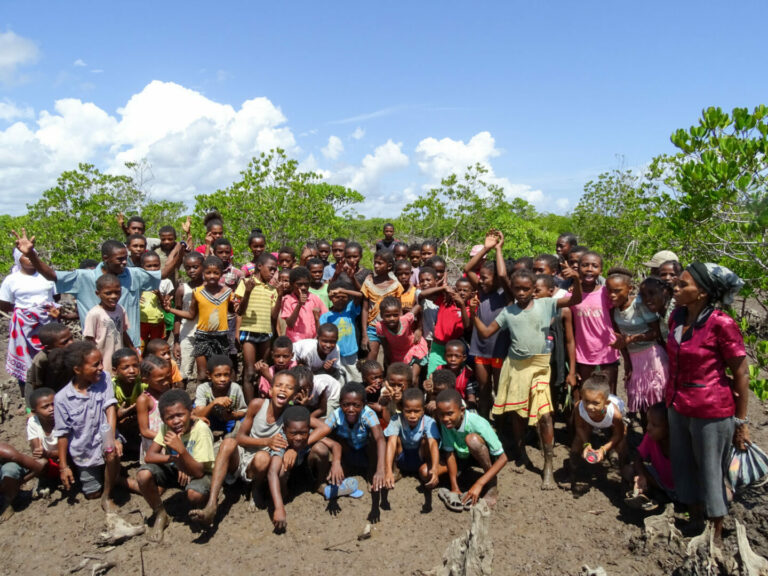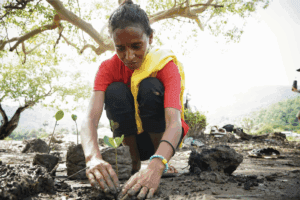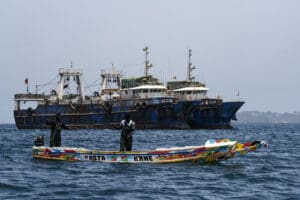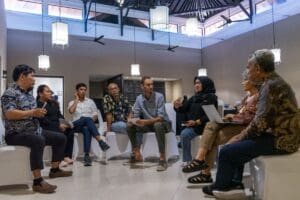The value of mangrove forests was celebrated in the village of Ampondrabe Mahamanina in northwest Madagascar, as local communities, school children and representatives from the public and private sectors came together for the International Day of Forests.
This two-day celebration in March was the first time that an official event had been hosted in Ampondrabe Mahamanina, a great honour for the community, and the women’s association and village elders took great efforts to ensure that it was a success.
The event began with speeches from the Village Leader, Blue Ventures’ Bienvenue Zafindrasilivonona, and the Chief and Deputy Chief of Environment, Ecology and Forests in the Ambanja district.
All the speakers highlighted the importance of forests in the daily lives of people in northwest Madagascar. The livelihoods of communities like Ampondrabe Mahamanina often depend heavily on forest resources such as mangrove-based fisheries, and the leaves and timber of the traveller palm (Ravenala madagascariensis).
Forests are vital as a source of wood for construction and fuel, but in many cases the requirements of communities reach unsustainable levels. In her speech, Bienvenue Zafindrasilivonona spoke of Blue Ventures’ strategy to develop alternative fuelwood by reforesting certain tree species to both increase fuelwood supply and reduce pressure on mangroves.
Blue Ventures also facilitates mangrove reforestation efforts, as mangrove ecosystems provide numerous benefits for coastal communities, including coastal protection from storms, shore stabilisation, water filtration, and supporting vital fisheries, including shrimp and crabs, which are crucial to livelihoods and food security.
Mangrove ecosystems also store extraordinary amounts of carbon in their biomass and sediments. The storage of this carbon not only helps to mitigate climate change, but also has value on international carbon markets, a value that can potentially be transferred to the communities that depend on mangrove ecosystems.
The great value of trees on hillsides was also highlighted explicitly in several of the speeches, as deforestation in these areas leads to erosion, landslides, silted rice fields, and more frequent flooding of villages.
After the speeches finished, the 177 attendees – including the local authorities, several women’s associations, and school children – came together to plant trees. Three hundred acacia trees (Acacia mangium) were planted in an area designated for alternative fuelwood, and 4,850 mangrove propagules (3878 Ceriops tagal and 972 Rhizophora mucronata) were planted in an area where mangroves had previously been cleared for charcoal production.
The reforested plots will now be cared for by the landowners and/or local communities, with regular monitoring by Blue Ventures’ blue forests technical team to ensure the trees will thrive and form a vital resource for the communities and habitat for native wildlife.
Contact: Hanjara Rabemanantsoa, Blue Forests Coordinator
Find out more about our work supporting community-led mangrove management




















